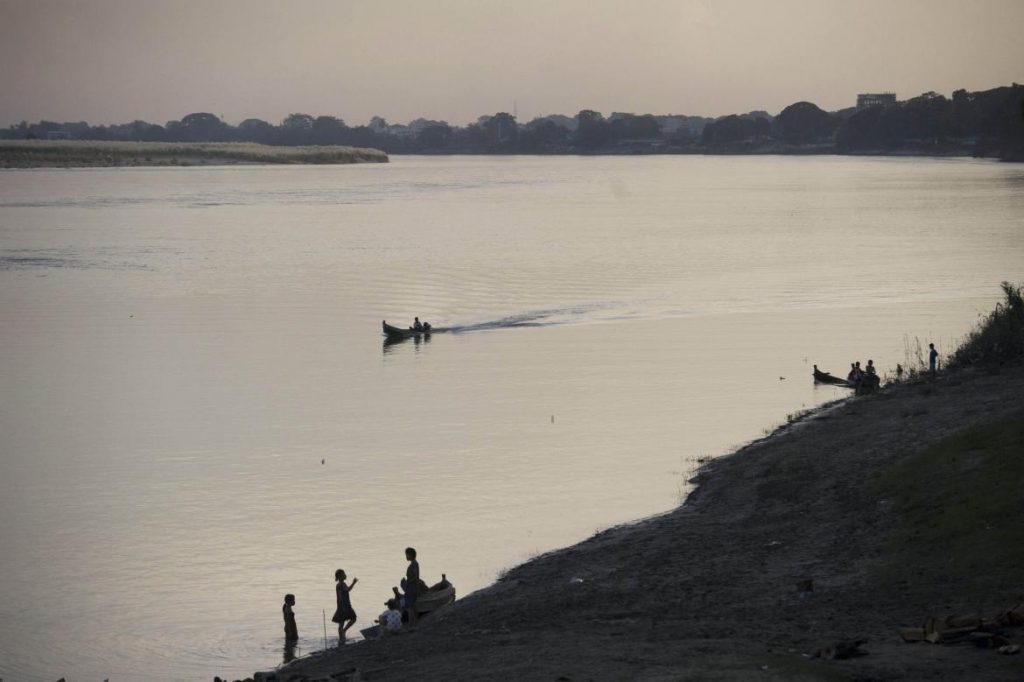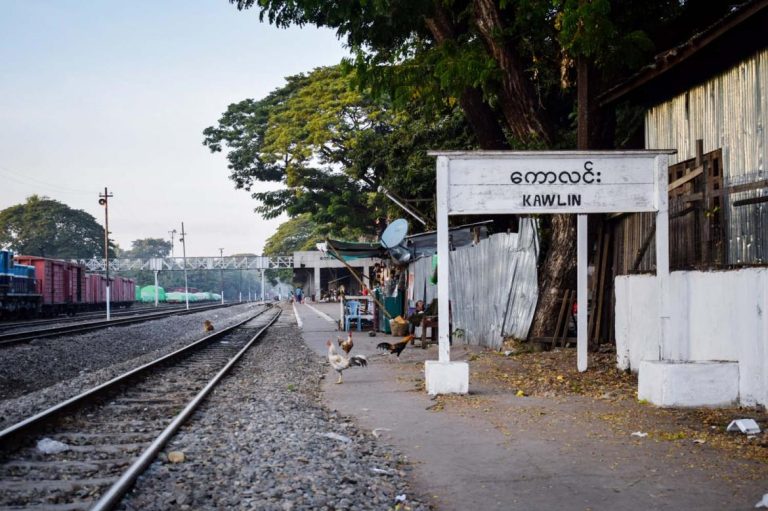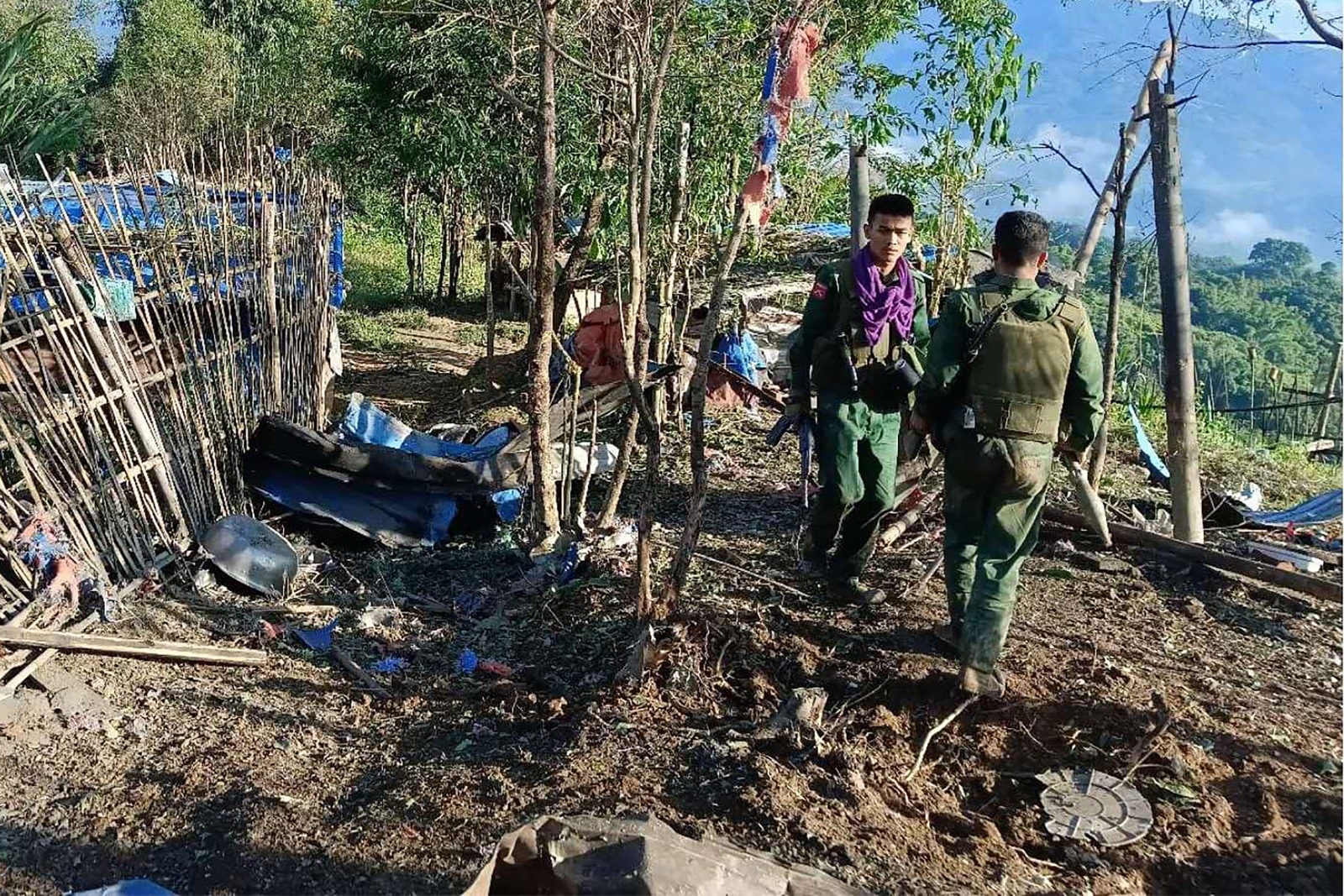As President U Thein Sein’s tenure nears an end, a timely documentary has re-focussed attention on his pledge to suspend work on the Myitsone Dam.
A new documentary has focussed attention on the plight of villagers living near the site of the interrupted Myitsone Dam project on which President U Thein Sein suspended work more than four years ago.
Drugs, Dams and Democracy, on which work began soon after the President’s dramatic September 30, 2011 decision to halt work on the project, features a rich cast of characters.
As well as villagers resettled to make way for the multi-million dollar dam, the documentary includes interviews with gold miners, musicians, heroin addicts, church leaders and a representative of the state-owned Chinese company with a big stake in the project.
The recent screening of the documentary in Yangon has re-focussed attention on U Thein Sein’s decision, in the face of an escalating national protest movement, to suspend work on the project for the tenure of his government. As his term in office nears an end, there have been reports that the project will be revived after the new government is formed early next year. However, U Thein Sein has not ruled out seeking a second term in office, and should he serve again as president, the implications of his pledge on the dam are not clear.
Support more independent journalism like this. Sign up to be a Frontier member.
Planning began in 2001 for the Myitsone Dam, where the confluence of the Malikha and N’Mai Kha rivers creates the Ayeyarwady River about 26 miles (42 kilometres) upstream from the Kachin State capital, Myitkyina. The dam was due to be completed in 2017 and to generate 6,000 megawatts, most of which was to be exported to China. State-owned China Power Investment Corporation holds an 80-percent stake in the project, in which the other partners are the Myanmar government and one of the country’s biggest conglomerates, Asia World.
“This issue is particularly important with the election coming, and one thing we want to do is start a discussion about the project,” Andrew Limond, the producer of the hour-long documentary, said at a screening in Yangon on October 14.
Among the main characters in the documentary are Ma Sek Hkawng and her young family. When the documentary begins they are living in riverside Tang Hpe village, but are resettled by CPI to a community known as Aung Myin Thar village where, they say, they have limited opportunities to improve their lives.
“She [Ma Sek Hkawng] wants to raise her children as well as possible, but they do not really have much hope for themselves,” said Ma Cherry Htike, who worked on the documentary and spent more than six months living with villagers affected by the project.
Mr Limond said CPI had arranged for an environmental impact assessment of the project but it had failed to take into account the dam’s impact on the entire Ayeyarwady River basin, which is home to an estimated 24 million people. “People downstream are increasingly aware of this project and the downsteam impact has to be taken seriously because it is immensely important,” he said.
The documentary also explores drug abuse in Kachin and the conflict there between the Kachin Independence Army, the armed wing of the Kachin Independence Organisation, and the Tatmadaw, which resumed in June 2011 after a 17-year ceasefire. The dam, which would flood a vast swathe of territory controlled by the KIO, had been cited as a source of tension between the two sides.
The KIA, one of the most powerful ethnic armies in Myanmar, was notable by its absence from the ceremony in Nay Pyi Taw on October 15 at which the government signed a national ceasefire agreement with eight ethnic armed groups.
During a recent election campaign visit to Kachin State, National League for Democracy leader Daw Aung San Suu Kyi was asked what would happen to the Myitsone Dam if the NLD formed the next government. Daw Aung San Suu Kyi said she could not promise that the project would be cancelled, but would ensure that all details of the contract between the government and CPI would be made transparent.







